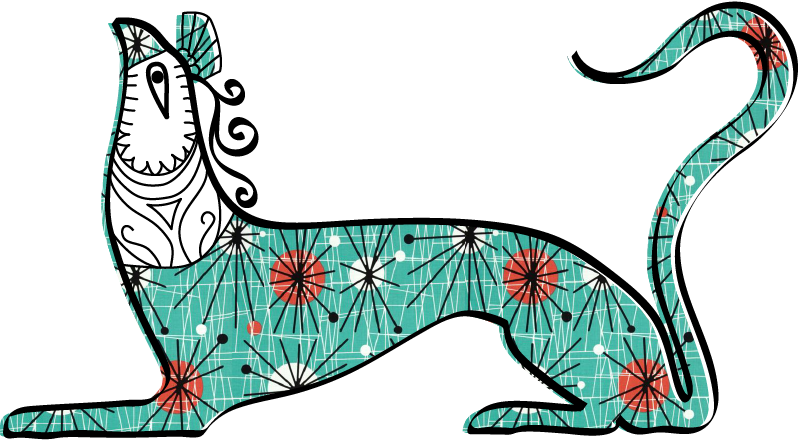56th ARU Lectures
The program of the 56th Public Lectures Series of the Archaeological Research Unit (ARU) of the University of Cyprus has been announced for autumn 2021. All lectures begin at 7:00 pm (EET). They are free and accessible via Zoom, but preregistration is required at https://ucy.zoom.us/meeting/register/tJwrduyhqjopEtapHuXutOu3-xz9S3OJ7IeZ. The program will be:
27 September 2021: T. Moutsiou, “Maritime connections in Eastern Mediterranean Prehistory”
4 Oct 2021: V. Klinkenberg, “Building biographies of Chalcolithic Cyprus”
11 Oct 2021: S. Menelaou, “Borderlands as areas of connectivity during the Third Millennium BC: Some reflections from the East Aegean”
18 Oct 2021: A. Charalambous, “From EBA to EIA Cyprus: A diachronic analytical study of copper-base artefacts”
25 Oct 2021: A. Georgiou, “Interregional commercial strategies in the Late Bronze Age – Early Iron Age Eastern Mediterranean: The contribution of the newly implemented ERC Starting Grant ‘ComPAS’”
1 Nov 2021: F. Schimpf, “Tamassos: Results of the city excavation, 1970-1981”
8 Nov 2021: A. Georgiadou and M. Dikomitou-Eliadou, “The MuseCo research project: The case study of Salaminian Iron Age pottery”
15 Nov 2021: M.-A. Vella, “Archaeo-geophysical surveys: A review from Cyprus”
22 Nov 2021: A. Demetriou, “Mapping Shipwreck Archaeologies in the Eastern Mediterranean: The sites, the people, and the environment”
29 Nov 2021: P. Mylona, “‘Xeros’ or not? The Xeros River valley in Cyprus and its history through the ages”
6 Dec 2021: O. Perdiki, “The spatiality and materiality of pilgrimage in Byzantine and Medieval Cyprus and religious networks in the Eastern Mediterranean (11th-16th centuries)”
13 Dec 2021: P. Hadjittofi, “Negotiating Modernity: Rural dress and sociocultural change in Cyprus during the British period (1878-1960)”
Mycenaean Seminars 2021-2022
The University of London School of Advanced Study, Institute of Classical Studies has announced the following schedule of Mycenaean Seminars for 2021-2022, hosted by the Institute of Classical Studies, London, to start at 3:30 pm GMT. Further information is available at https://ics.sas.ac.uk/sites/default/files/files/Mycenaean%20Seminar%202021-22_final.pdf.
13 October 2021: S. Murray, “Heavy Metal: Pyrotechnology and Society in the Postpalatial Aegean” — online
10 November 2021: D. Mylona, “Beyond Fishing: Processing of Marine Resources and a Little-Known Aspect of Palatial Societies in the 2nd Millennium BC” — online
8 December 2021: A. Van de Moortel, “Cycles of Civilization in Central Greece: the Case of Mitrou” — online
12 January 2022: A. Ulanowska, “Not Only Clothing. The Consumption of Textiles in Bronze Age Greece and New Evidence for Technical Textiles from Imprints on the Undersides of Clay Sealings” — online
16 February 2022: A. Judson, “Writing Practices in the Palace of Pylos” — format TBA
16 March 2022: R. Koehl, “Recent Evidence for Interconnections between the Aegean and Tel Atchana (ancient Alalakh) from the Middle Bronze into the Iron Age” — format TBA
18 May 2022: N. Momigliano, “Every Nation Has the Minoans and Mycenaeans It Deserves (and Desires)” — format TBA
ASOR 2021
On 17-20 November 2021 (in person) and 9-12 December 2021 (online, CST) the 2021 Annual Meeting of ASOR (ASOR 2021) will take place in Chicago, IL. Contact and registration information, and a full program and abstract book are available at http://www.asor.org/am/index.html. Papers of interest to Nestor readers will include:
B. E. Davis, “Tell es-Safi’s Contributions to Knowledge of Early Philistine Writing and Language”
A. M. Maeir, “25 Years at Tell es-Safi/Gath: Where Has This Taken Us?”
P. W. Stockhammer, M. Feldman, M. Artzy, E. Boaretto, S. Eisenmann, M. Faerman, A. M. Maeir, I. Milevski, M. Schultz, P. Smith, D. Yegorov, C. Jeong, and J. Krause, “Population Dynamics in the Central and Southern Levant during the 2nd and 1st Millennium BCE: Tell es-Safi and Beyond”
O. Ackermann, “Ancient Environment and Human Interaction — Interdisciplinary Research — Tell es Safi/Gath”
A. McCarthy, “Between the Rocks and a Hard Place: The Materiality of Stone from the Neolithic to the Bronze Age”
D. R. Cassuto, “The Fabric of a Society: 25 Seasons of Excavating Textile Production at Iron Age Tell es-Safi/Gath”
A. Creekmore, “Urban Form and Structure at Tell es-Safi in the Context of Philistine Urbanism”
J. R. Chadwick, “‘And He Broke Down the Wall of Gath!’ — A Summary Breakdown of Successive City Walls and Gates from the Early Bronze Age to Iron Age II Discovered by the Tell es-Safi/Gath Archaeological Project”
W. H. Krieger, “Theoretical and Methodological Change in the Archaeology of Philistia”
L. G. Meiberg, “Decorative Motifs on the Philistine Pottery from Tel Beth-Shemesh: New Observations”
A. H. Simmons and R. F. Kolvet, “Wood, Grapes, and Meds — Archaeobotanical Evidence from the Groundstone Assemblage at Neolithic Ais Giorkis”
P. Waiman-Barak, A. Georgiadou, and A. Gilboa, “Regional Mineralogical and Technological Characterization of Cypriot Iron Age Pottery: A View from Tel Dor”
M. T. Horowitz, “Storage and Stages: Hallmarks of Early Monumental Architecture at Late Bronze I Phlamoudhi-Vounari, Cyprus”
C. M. Weber, “The Tel Kabri Wall and Floor Paintings: Microcosms of Mediterranean Middle Bronze Age Trade and Interconnection of Canaanite Palatial Economies”
J. L. Kramer, “The ‘Strong-Built’ (Prefabricated) Walls of Troy: The Living Quarters of the Cincinnati Troy Expedition”
A. Marciniak, “Occupying and Exploiting the Offsite Zone of the Late Neolithic Settlement at Çatalhöyük”
B. Janeway, “What’s in a Face? An Anthropomorphic Pictorial Sherd from Tell Tayinat, Turkey”
R. Gerdes, J. Goldfarb, A. South, J. Regenstein, and S. Manning, “Tracing Olive Oil in Ancient Cyprus and Beyond Using Organic Residue Analysis: A Reevaluation”
C. L. Johnston, “The Multimodal Trade Networks of New Kingdom Egypt: The Circulation of Aegean and Cypriot Ceramic Imports”

